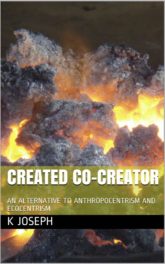
Nature somehow complements the lives of human beings. Non-human world help human beings to actualize their potentialities and possibilities. But now a days nature is being ruthlessly exploited by human beings. To amass wealth, human beings exploit non-human world and its resources without considering nature’s demand. It instigates catastrophic incidents like ozone depletion, green gas effect etc. To resolve or even to justify such problems human beings tried to view nature from human being centered perspective. In contrast, a group of people tried to find ways to settle those issues by interpreting events from nature’s perspective.
It was common in ancient and Middle Ages to view nature from the perspective of human beings. With Rene Descartes, the French philosopher, humans were pictured as the centre, measure of everything. As a reaction to this view, giving importance to all creatures, emerged another trend, namely, ecocentrism. Unfortunately, thus human being was seen as one of the creatures. Besides, the intrinsic value of human beings was ignored. Meanwhile, there emerged a lot of discussion to propose a middle position, reconciling anthropocentrism and ecocentrism. But in practice all of them proved to be a failure. I believe that, the reason of its failure is the insufficiency of its theoretical framework. Here comes the importance of Philip Hefner’s notion of ‘created co-creator’ which, to a great extent, synthesizes anthropocentrism and ecocentrism.
In the tug of war between anthropocentrism and ecocentrism, Philip Hefner introduces his view of human beings as created co-creators which maintains a balanced insight regarding the question how human beings are united with the rest of creation. Thus, this dissertation critically evaluates the different positions regarding this view and arrives at a conclusion that this theory is an alternative to anthropocentrism and ecocentrism.

